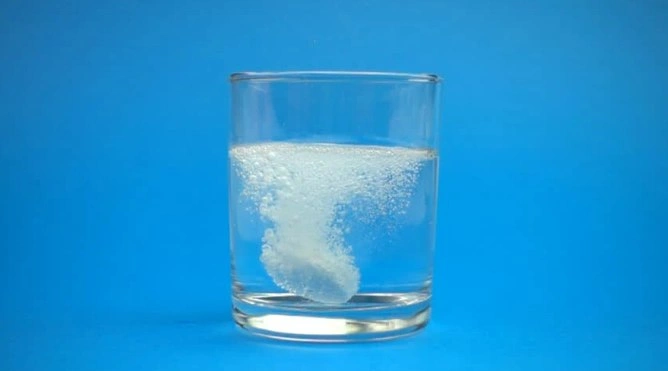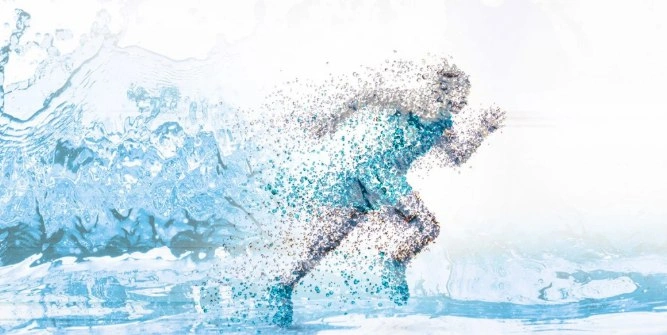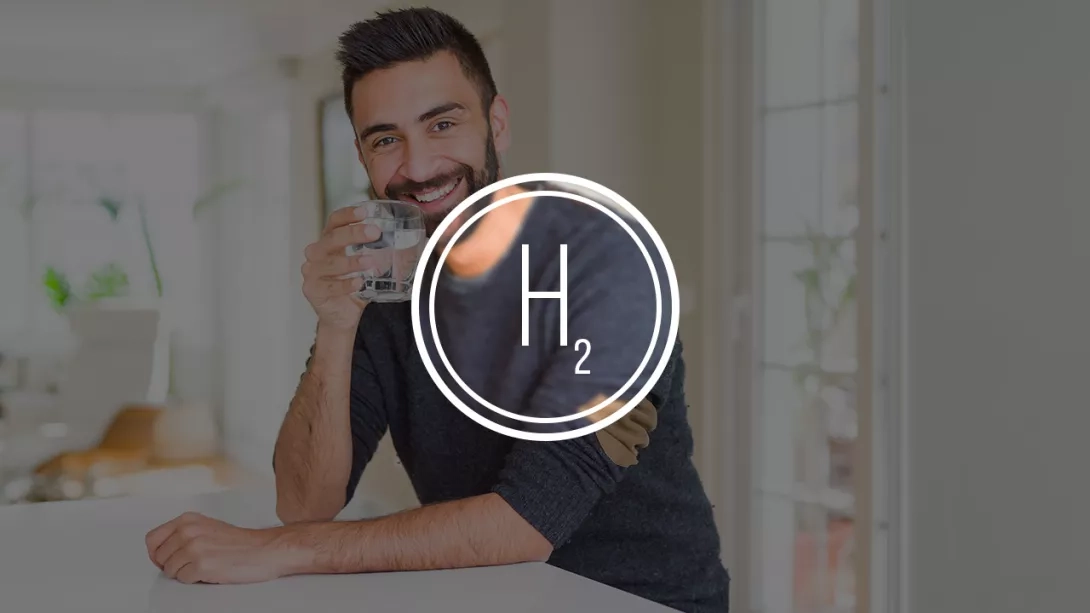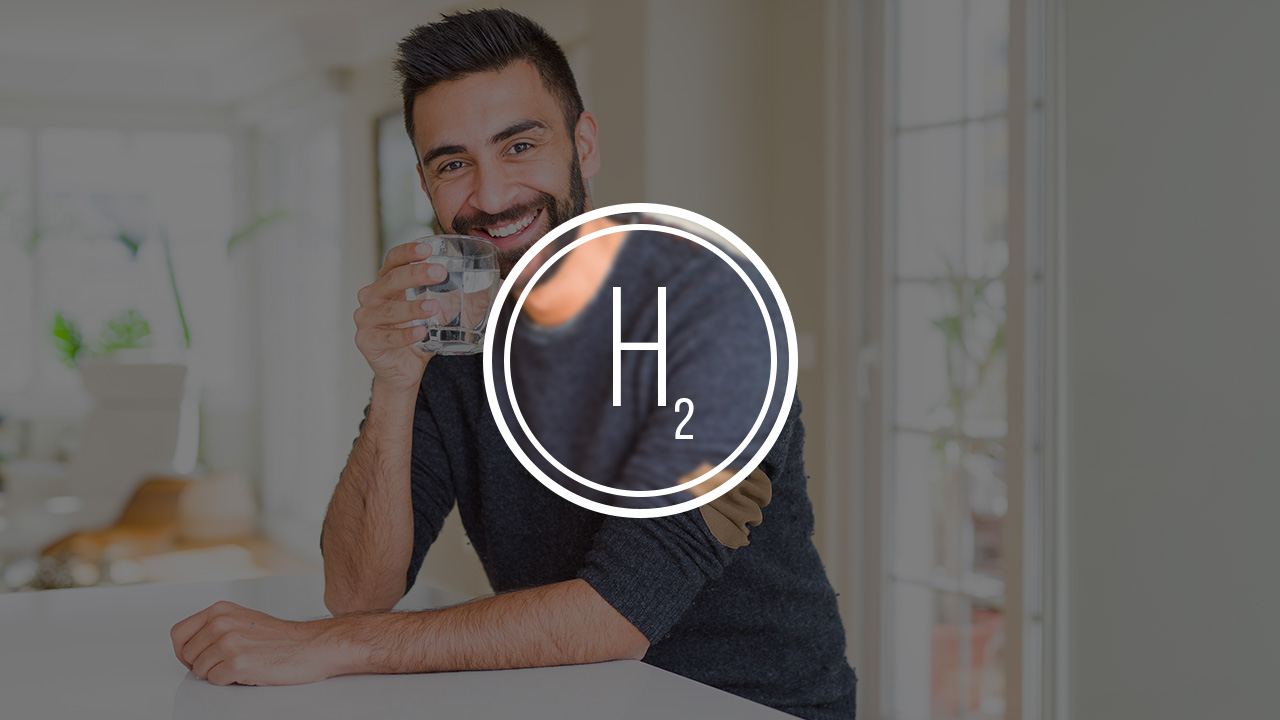Water is the source of life on Earth. It covers 2/3 of the Earth's surface, constitutes 60% of the human body, and is the foundation of plant- and animal-based nutrition.
Water consists of one molecule of oxygen and two molecules of hydrogen, bonded together. Pure water doesn’t exist in nature; it always contains dissolved substances—minerals or organic matter. The safety and benefit of these components depend on what the water has been in contact with. Natural minerals, for example, enrich water with calcium, magnesium, and sodium salts, while industrial discharge can introduce heavy metals and complex organic compounds.
What Is Hydrogen Water?
As mentioned above, a water molecule is composed of one oxygen atom and two hydrogen atoms. In addition, water can contain dissolved gases. Simply put, hydrogen water is regular water that has been artificially infused with hydrogen gas, similar to how carbonated water is enriched with carbon dioxide.
Hydrogen does not chemically react with water, nor does it create any by-products. Like carbon dioxide, hydrogen will evaporate into the air once the container is opened.
How to Make Hydrogen Water
Pre-made hydrogen water is often sold in aluminum containers, though it may be difficult to find in some countries. In other regions, it costs around $3 per liter.
There are two methods to make hydrogen water at home:
- Using special devices known as hydrogen water generators that use electrical currents to split water into hydrogen and oxygen.
- Dissolvable tablets that release hydrogen when mixed with water.
Below, we’ll describe these methods in detail.
How Does a Hydrogen Water Generator Work?
Portable hydrogen water generators operate on the principle of electrolysis, which involves passing an electric current through water to release hydrogen gas.
In a container of water, there are two electrodes: a cathode and an anode. When connected to a power source, like a battery, an electric current flows through the water, initiating electrochemical reactions. During this process, the right electrode combination will cause water to break down, releasing hydrogen and oxygen gases.
The cathode acts as a reducing agent:
- At the cathode: 2H2O→O2+4H++4e−
- At the anode: 2H2O+2e−→H2+2OH−
At the cathode, oxygen atoms in the water turn into gaseous oxygen, and at the anode, hydrogen atoms become gaseous hydrogen. Besides producing gases, electrolysis also releases alkaline ions, which can increase water’s pH, creating both hydrogen and alkaline water.
Portable hydrogen water generators are popular and typically consist of a glass bottle with a lid and a small electrolyzer. Depending on the technology, a special ion-exchange membrane may be present between the electrodes to prevent pH changes in the water.
Japan’s Ministry of Health has approved home electrolyzers for water, and these devices are also gaining popularity in the U.S.
Tablets for Making Hydrogen Water
This method is simple: add a dissolvable tablet to water, much like an aspirin tablet. The difference is that hydrogen is released rather than carbon dioxide. It’s recommended to cover the container during the reaction, as hydrogen is not very soluble in water.

In this method, hydrogen is generated by a reaction between magnesium and water:
Mg+2H2O→Mg(OH)2+H2
As you can see, pure hydrogen and alkali are released during the reaction. Fumaric and malic acids are added to the tablet composition to lower the pH of the solution and accelerate tablet dissolution.
Is Hydrogen Water Beneficial?
Any claims of health benefits must be backed by clinical research. Research on hydrogen-enriched water began in 2007, with Japanese scientists leading the way, followed by U.S. researchers. Here’s what scientists have to say about hydrogen water. Most studies have been conducted on lab animals, and human studies have generally involved small groups (18–50 participants). While more research is needed before recommending hydrogen water as a treatment, some findings are promising.
Researchers suggest that hydrogen water’s benefits lie in its ability to neutralize free radicals formed when oxygen loses electrons during biochemical processes.

Scientists have been particularly interested in the effects of hydrogen water on metabolic diseases. In a Japanese study (2008) lasting eight weeks, some blood parameters were slightly altered in participants who drank 900 ml of hydrogen water daily. For example, levels of lipoproteins, triglycerides, glucose, and fatty acids decreased slightly (up to 1.5%), while insulin levels increased by about 6%, showing an influence of hydrogen on human health.
A more recent study (2019) involving 50 participants showed that hydrogen water can have beneficial effects on individuals with poor baseline health markers.
Other studies noted an increase in athletes' endurance and reduced lactic acid production during physical activity. Research has also explored hydrogen water's impact on metabolic syndrome (hypertension, obesity, high cholesterol, elevated blood sugar), with positive results for improving blood markers.
There are also studies examining hydrogen water’s role in managing conditions such as Parkinson's disease, hemodialysis, symptom relief from cancer radiation therapy, various types of hepatitis, and dental health.

In conclusion, hydrogen water seems to be one of the first trendy wellness waters to receive some validation in scientific literature. Often, such methods for “revitalizing” drinking water are either ignored or outright dismissed by scientific sources.








